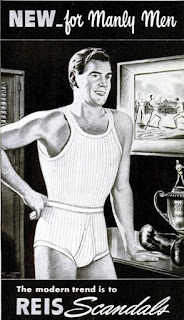Tough Guise
Today we watched a video about how our society socializes boys in a narrow
and limited way. That video is called "Tough Guise". In other words, the disguise
to seem tough that guys put on. Watch Tough Guise 2 on mediacast by clicking here.
Please read the article I assigned by Kimmel and Mahler related to this.
The documentary has a few important parts. First, is the idea that men are at risk
The documentary has a few important parts. First, is the idea that men are at risk
because masculinity is a social construction that says violence, anger and toughness
are the only okay emotions or reactions for males. When violence occurs in society,
the media and society ignore the masculine element. They just assume that it is natural.
However, the connection between masculinity and violence has only been around
However, the connection between masculinity and violence has only been around
since society changed from an agricultural patriarchy to a modern more egalitarian society.
As our society changed to be more urban and more equal, men have been taught to
fear women and fear the changes. These changes helped to popularize the Western
movies and shows that have only been around the last 75 years or so.
Along with the change of society came changes in acceptance of women as equal and
Along with the change of society came changes in acceptance of women as equal and
changes in gay rights. Fear of the changes in society is filtered throughout society
via politics and media. Guns are a symptom of the fear of the changes. There is a
siege mentality that promotes rugged individualism and gun ownership as a way
of fighting back both literally and figuratively. Guys today are taught that violence
is the only way to be really considered a man and to hold onto their manhood.
This includes denigrating anything that is female or gay. This creates a dangerous
This includes denigrating anything that is female or gay. This creates a dangerous
anti-woman attitude.
He ends with the idea that we can all make little changes in how we talk and act and
He ends with the idea that we can all make little changes in how we talk and act and
think. We can support movies that show honest portrayals of guys and movies that help
broaden the box that guys fit into.







